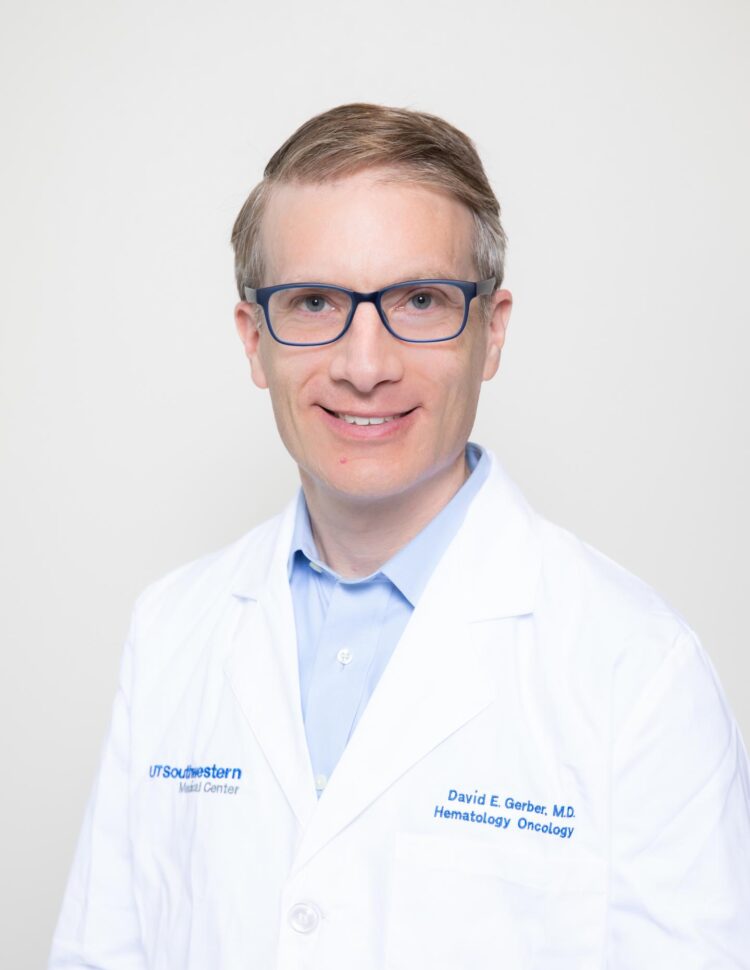DALLAS – June 14, 2021 – Overweight cancer patients receiving immunotherapy treatments live more than twice as long as lighter patients, but only when dosing is weight-based, according to a study by cancer researchers at UT Southwestern Medical Center.
The findings, published in the Journal for ImmunoTherapy of Cancer, run counter to current practice trends, which favor fixed dosing, in which patients are given the same dose regardless of weight. The study included data on nearly 300 patients with melanoma, lung, kidney, and head and neck cancers over five years. Overweight patients were considered those with a body mass index, which accounts for height and weight, of 25 or more.
The researchers found that overweight patients did better with weight-based dosing, while lighter patients did better with fixed-dose immunotherapy. With weight-based dosing, overweight patients lived an average of more than 20 months compared with less than 10 months for lighter patients. With fixed dosing, both groups had similar outcomes, living an average of 16 months.
“Even when we accounted for differences in tumor and treatment types, overweight patients lived twice as long as smaller patients if they received weight-based dosing. However, there was no difference if they received fixed-dose immunotherapy,” said senior author David Gerber, M.D., professor of internal medicine within the division of hematology and oncology at UT Southwestern, and associate director of clinical research in the Harold C. Simmons Comprehensive Cancer Center.
###
The Simmons Cancer Center, one of about 50 comprehensive cancer centers designated by the National Cancer Institute nationally and the only one in North Texas, is a member of the National Comprehensive Cancer Network and nationally ranked among the top 40 cancer programs in the nation by U.S. News & World Report.
The work was supported by a National Cancer Institute Midcareer Investigator Award in Patient-Oriented Research (K24 CA201543-01; to DEG), the National Institute of Allergy and Infectious Diseases (1U01AI156189-01; to DEG, EKW, YX), an American Cancer Society-Melanoma Research Alliance Team Award (MRAT-18-114-01-LIB; to DEG), a V Foundation Robin Roberts Cancer Survivorship Award (DT2019-007; to DEG), the University of Texas Lung Cancer Specialized Program of Research Excellence (SPORE) (P50CA070907-21), and the Harold C. Simmons Comprehensive Cancer Center Data Sciences Shared Resource (1P30 CA 142543-03).
About UT Southwestern Medical Center
UT Southwestern, one of the premier academic medical centers in the nation, integrates pioneering biomedical research with exceptional clinical care and education. The institution’s faculty has received six Nobel Prizes, and includes 25 members of the National Academy of Sciences, 17 members of the National Academy of Medicine, and 13 Howard Hughes Medical Institute Investigators. The full-time faculty of more than 2,800 is responsible for groundbreaking medical advances and is committed to translating science-driven research quickly to new clinical treatments. UT Southwestern physicians provide care in about 80 specialties to more than 117,000 hospitalized patients, more than 360,000 emergency room cases, and oversee nearly 3 million outpatient visits a year.
Media Contact
UT Southwestern Medical Center
[email protected]





